Symphonic Slam - Symphonic Slam (Reissue) (1976/2001)
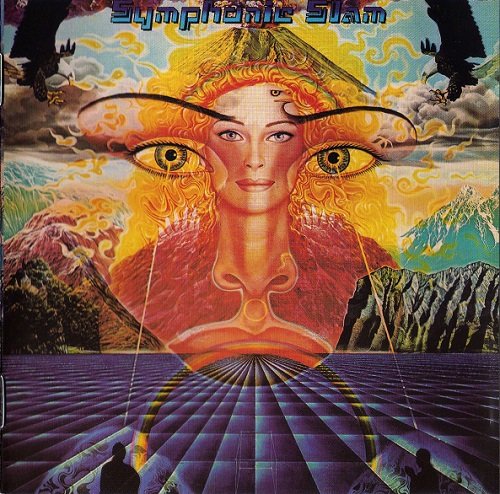
Artist: Symphonic Slam
Title: Symphonic Slam
Year Of Release: 1976/2001
Label: Musea
Genre: Prog Rock
Quality: Mp3 320 / Flac (image, .cue, log)
Total Time: 41:46
Total Size: 108/281 Mb (scans)
WebSite: Album Preview
Title: Symphonic Slam
Year Of Release: 1976/2001
Label: Musea
Genre: Prog Rock
Quality: Mp3 320 / Flac (image, .cue, log)
Total Time: 41:46
Total Size: 108/281 Mb (scans)
WebSite: Album Preview
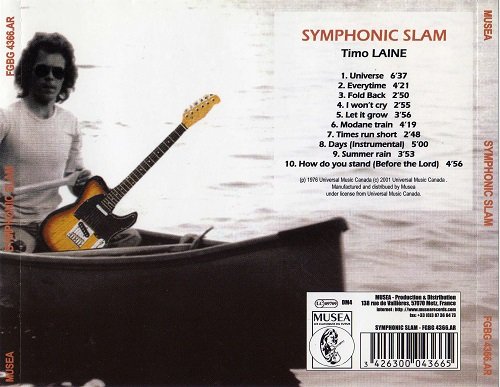
Tracklist:
1. Universe (6:37)
2. Everytime (4:21)
3. Fold Back (2:50)
4. I Won't Cry (2:55)
5. Let It Grow (3:56)
6. Modane Train (4:19)
7. Times Run Short (2:48)
8. Days (instrumental) (5:00)
9. Summer Rain (3:53)
10. How Do You Stand (before The Lord) (4:56)
Line-up::
Timo Laine / guitar synthesizers, guitar, vocals
John Lowery / drums, backing vocals
David Stone / keyboards, backing vocals
Symphonic Slam was mainly about Timo Laine (born in Finland, and moved to America as a child), and his polyphonic guitar synthesizer. The rest of the band was filled out by drummer John Lowery, and keyboardist David Stone.
Timo had been playing the club circuit for a while, but it wasn't until he relocated to Canada that things began to happen. It was there that Symphonic Slam was discovered by A&M Records. What set them apart was the $10,000 360 systems guitar synthesizer prototype. This led to the release of their 1976 self-titled album.
They toured, and played gigs with some of the big names of the time (Rush, The Rolling Stones, and the Village People). Soon they were asked to go to L.A. to work on a new album. Not being interested in this tack, Stone took the opportunity to defect to Rainbow.
After the album was completed, A&M wasn't pleased (they wanted disco). Timo took it to Canada, and created his own label on which to release it. It had some modest success, but Laine wasn't interested in going back to L.A. to fight disco once again.
Musea's 2001 re-release of the first album inspired Timo to get back on the horse. Apparently he had been working on another album for many years. "Her Fire" is supposed to be released some time in the future. He is also working on an instrumental solo project.
You can hear some influences of Styx, Kansas, Wakeman, Emerson, a bit of E.L.O., and even some funk. However, this is not like most of what we consider to be the classic '70s progressive sound. Some of those qualities are woven in, and there are some lovely moments. But make no mistake, this is mid 70's rock and roll at the core.
The main point of interest here is really the fact that Laine basically pioneered the synth guitar. It was a very new thing at the time.
Timo had been playing the club circuit for a while, but it wasn't until he relocated to Canada that things began to happen. It was there that Symphonic Slam was discovered by A&M Records. What set them apart was the $10,000 360 systems guitar synthesizer prototype. This led to the release of their 1976 self-titled album.
They toured, and played gigs with some of the big names of the time (Rush, The Rolling Stones, and the Village People). Soon they were asked to go to L.A. to work on a new album. Not being interested in this tack, Stone took the opportunity to defect to Rainbow.
After the album was completed, A&M wasn't pleased (they wanted disco). Timo took it to Canada, and created his own label on which to release it. It had some modest success, but Laine wasn't interested in going back to L.A. to fight disco once again.
Musea's 2001 re-release of the first album inspired Timo to get back on the horse. Apparently he had been working on another album for many years. "Her Fire" is supposed to be released some time in the future. He is also working on an instrumental solo project.
You can hear some influences of Styx, Kansas, Wakeman, Emerson, a bit of E.L.O., and even some funk. However, this is not like most of what we consider to be the classic '70s progressive sound. Some of those qualities are woven in, and there are some lovely moments. But make no mistake, this is mid 70's rock and roll at the core.
The main point of interest here is really the fact that Laine basically pioneered the synth guitar. It was a very new thing at the time.
![Ben Webster - King Of The Tenors (1956/2026) [Hi-Res] Ben Webster - King Of The Tenors (1956/2026) [Hi-Res]](https://www.dibpic.com/uploads/posts/2026-01/1769713395_cover.jpg)
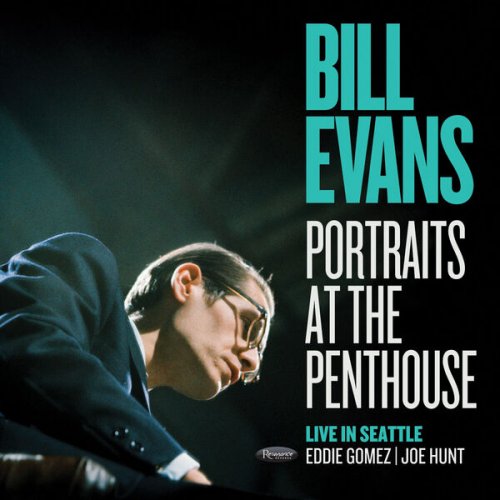
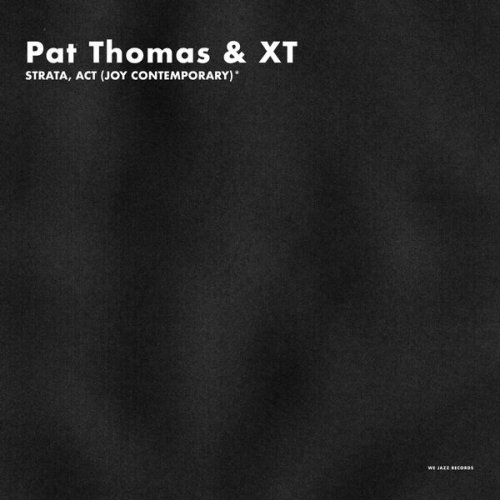

![Anne Paceo - Atlantis (Deluxe Edition) (2026) [Hi-Res] Anne Paceo - Atlantis (Deluxe Edition) (2026) [Hi-Res]](https://www.dibpic.com/uploads/posts/2026-01/1769709338_kwz9wyhqeqpgf_600.jpg)
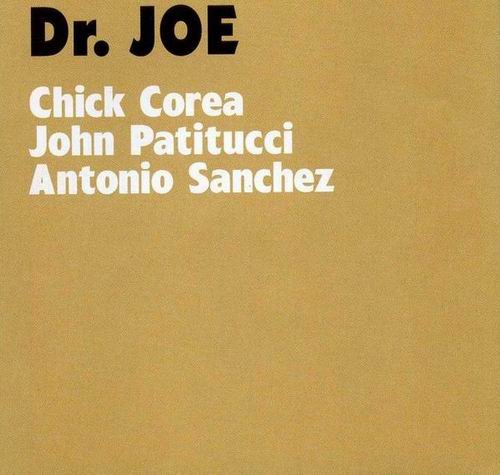
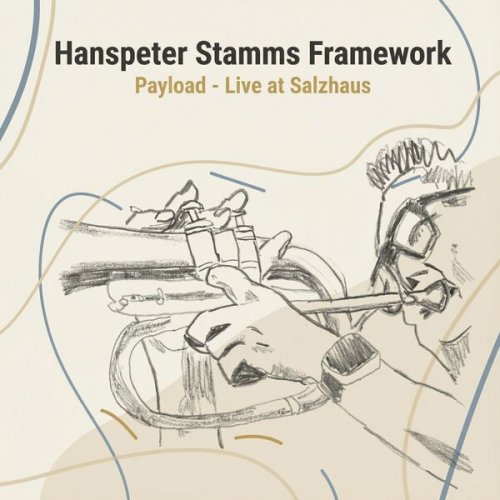
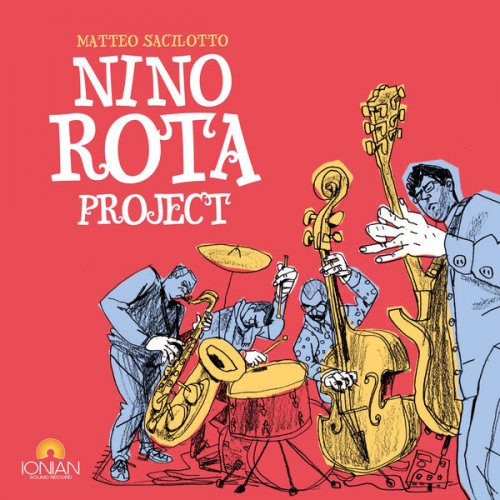
![Paddy Fitzgerald - Floot Bird (2026) [Hi-Res] Paddy Fitzgerald - Floot Bird (2026) [Hi-Res]](https://img.israbox.com/img/2026-01/31/hc7n83ki2t4vuc9euigby2lfm.jpg)